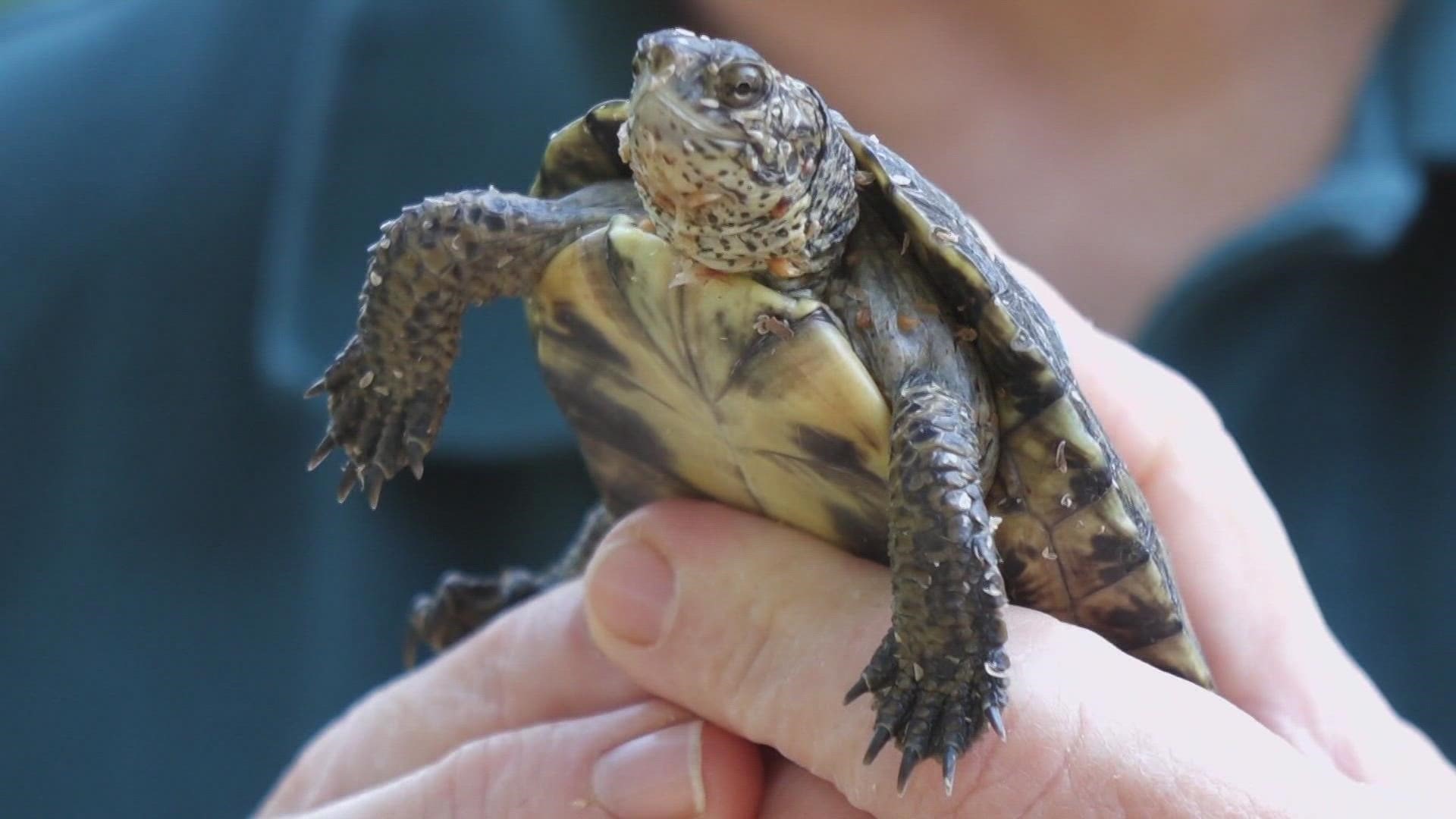SEATTLE — Washington Department of Fish and Wildlife (WDFW) and Woodland Park Zoo are fighting for the future of a local animal many people probably didn’t realize was approaching extinction just a few decades ago.
The western pond turtle is the only native turtle to Western Washington. In 1990 the population declined to a point where only about 150 western pond turtles remained in the state.
The turtles were once harvested and other predators, including invasive bullfrogs, led to the decline of the western pond turtle.
In 1991, WDFW and the Woodland Park Zoo came together to form the western pond turtle recovery project, which aimed to rebound the species' population. In 1999, the Oregon Zoo also joined the effort.
Nonprofits, government agencies and other private partners also pitched in over the last three decades to help the three organizations.
Over the last three decades, the project, and the "head start" program at the Woodland Park Zoo, resulted in more than 2,300 turtles being reintroduced to the wild, which have turned into self-sustaining populations.
The Puget Sound and Columbia River Gorge are home to protected locations that give the western pond turtle a chance to thrive in the wild again.
Sue Andersen is a keeper at the Woodland Park Zoo. She says the head start program starts with gathering eggs in order to protect them from predators like raccoons, bears and bullfrogs.
“We care for them in such a way that when they are released they’re about the size of a three-year-old turtle and that’s important because they need to be big enough to not be eaten by a bullfrog,” Andersen said.
On Friday, more than 30 juvenile western pond turtles raised at the zoo were released into a protected recovery site in Pierce County.
Emily Butler is a wildlife biologist with WDFW. She says the turtles are marked and tracked so they provide valuable information.
“These turtles are important to the ecosystem and also an important part of our state's history, so this is painstaking but vital for an animal that was thriving well before we were ever here,” Butler said.
Learn more about the recovery project here.

